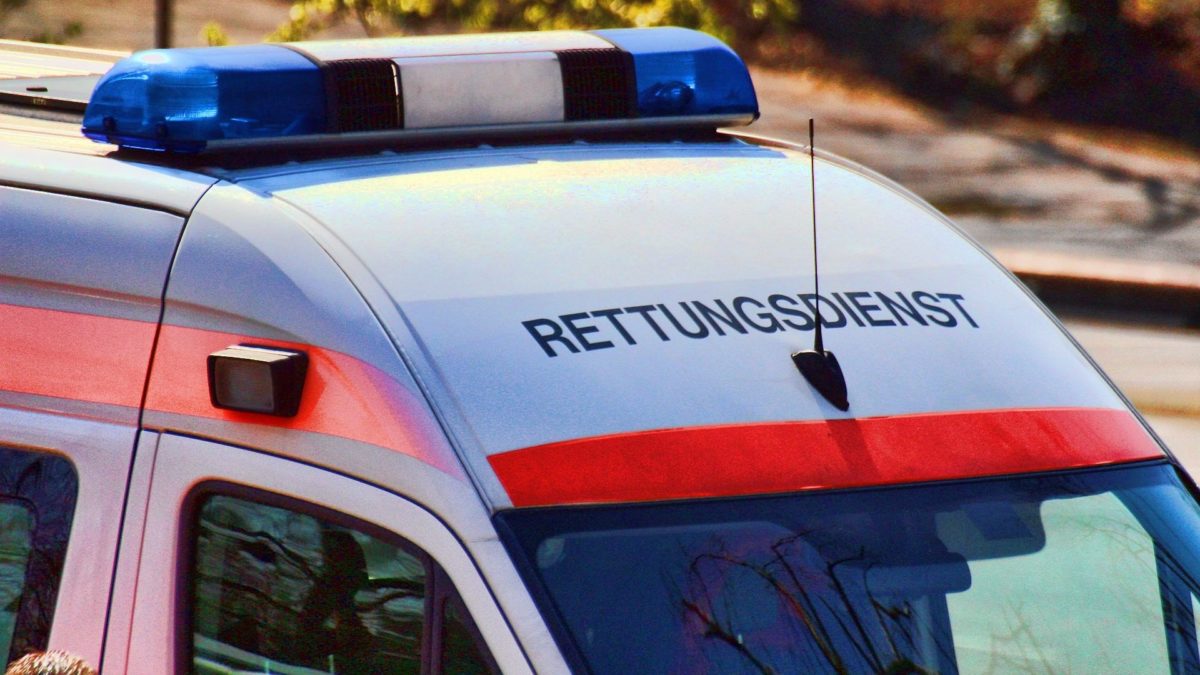Rescue Management (B. Sc.)
Who offers this course?
MSH Medical School Hamburg
Duration
Part-time: 9 semesters
State Recognition
Yes
Type of Study
University of Applied Sciences studies
SPECIALS
Start
1 April (sommer semester)
1 October (winter semester)
Part-time model at block weekends
If the three-year training programme for emergency paramedics is recognised, it can be shortened to up to 6 semesters.
Qualification on Completion
Bachelor of Science
What is the content of the course of studies?
The Bachelor’s degree course in Rescue Management qualifies students for a position in middle-level rescue service management, for example as head of a rescue station, a rescue service area or the department of an emergency organisation. In this role, you will be responsible for ensuring that everything runs smoothly, preparing and planning operations and managing the staff assigned to you. Depending on your field of activity, you may also be responsible not only for personnel but also for budgets.
The course covers a wide range of topics: management theories, business know-how and background information on the structure and organisation of rescue service systems. In addition, several study modules aim to promote personal and social skills as a modern manager. A particular advantage is the part-time nature of the degree programme. This ensures a close link between theory and practice. You bring experience from your everyday professional life into the programme and can use the knowledge and skills taught in the seminars in your field of work from the very first semester. Module M13 “Occupational Health and Safety and Hygiene” gives you the opportunity to acquire three attractive additional qualifications, which are recognised nationwide, without any additional time or financial outlay. Certification as a hygiene officer, safety officer and internal auditor for occupational health and safety management can increase your chances of a successful career start in many fields of activity.
You will be able to work analytically using a suitable repertoire of methods and develop scientifically based problem-solving approaches for practical application. After successfully completing your degree programme, you will have the best possible qualifications to further develop the rescue service as part of public services in a systematic and needs-based manner.
Study content:
- Economics / Business Administration
- Planning and Control / Organisation
- Personnel and management
- Ethics in health and medicine
- Emergency medicine / crisis intervention, psychosocial support and emergency preparedness
- Vehicles, facilities and equipment
- Labour law / occupational health and safety, occupational safety and hygiene
- System structures and innovation in the rescue service
- Operational and demand planning
- Scientific work
- Training in personal and social skills
- Statistics
- Introduction to medical informatics
Where can I find employment later on?
Employment can take place, among other things:
- Aid organisations
- Rescue organisations
- Fire brigades
- Rescue control centres
- Organisations responsible for rescue services, e.g. city and district administrations
- Cost bearers of rescue services
What are the entry requirements?
- General higher education entrance qualification or
- Subject-related higher education entrance qualification or
- Advanced technical college entrance qualification according to § 37 HmbHG or
- Special access for professionals according to § 38 HmbHG via entrance examination (according to the entrance examination regulations) and job interview,
- Successfully completed vocational training as an emergency paramedic
- Authorisation to use the professional title of emergency paramedic
- Curriculum vitae in tabular form and two recent passport photos (name on reverse),
- Copy of identity card (front and back), for foreign students identity card,
- If applicable, proof of previous employment,
- Proof of first degree, course book or degree certificate, if the applicant has already studied at other universities.
- The degree programmes at MSH are NC-free: talent, motivation and discipline count more than the average grade on your certificate. Punctuality, good performance and commitment during your studies are of great importance.
In what fields/subject areas can I work?
The demand for academically qualified managers in the emergency services is high. The demands on rescue service management have been increasing for years, and the development of target-oriented solutions is becoming ever more complex: increasing cost pressure, demographic change and changes in operational procedures are just a few keywords of great importance. Rescue managers are urgently needed who can put their expertise into practice and not only manage the rescue service, but also develop it further in an innovative and scientifically sound manner.
In order for aid organisations and rescue service companies to remain competitive in the long term, they need managers who have in-depth knowledge of the organisation and the overall system of the German rescue services, have business expertise and can assume socially competent personnel responsibility.
The internationally recognised Bachelor of Science degree gives you the opportunity to continue with a Master’s degree and open up further prospects for your professional future. MSH offers interesting Master’s programmes, such as
- Clinical Research (M.Sc.)
- Digital Health Management (M.Sc.)
What costs will I incur as part of my studies?
Tuition fee 390 euros per month, plus 100 euros one-off enrolment fee.
Funding opportunities: BAföG, federal government education loan programme, scholarships, student loan.
